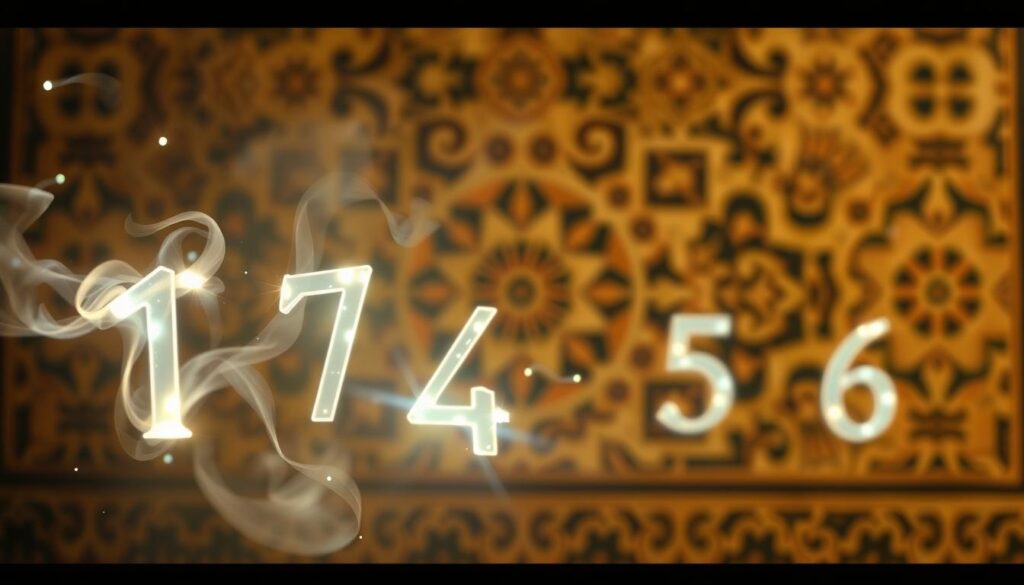In today’s world, many people encounter repetitive sequences like 111, 333, or 1234 in their daily lives. These patterns, often called angel numbers, are believed by some to carry divine messages. Modern spiritual practices and New Age circles have popularized this concept, attributing specific meanings to these sequences.
However, the idea of angel numbers is not rooted in biblical teachings. While ancient numerology assigned spiritual significance to numbers, the modern interpretation of angel numbers lacks scriptural basis. Figures like Doreen Virtue have redefined these sequences, blending them with New Age beliefs.
Biblical passages, such as John 14:26 and Hebrews 6:19, emphasize direct communication with God through prayer and the guidance of the Holy Spirit. This contrasts sharply with the New Age practice of seeking signs in external phenomena like angel numbers.
This article will explore the origins of angel numbers, their modern interpretations, and why they do not align with biblical teachings. Join us as we uncover the truth behind this concept and highlight the importance of relying on true spiritual guidance.
Key Takeaways
- Angel numbers are repetitive sequences believed to carry divine messages.
- They are popular in modern spiritual practices but lack biblical foundation.
- Ancient numerology assigned spiritual meanings to numbers, but modern interpretations differ.
- Biblical teachings emphasize direct communication with God, not external signs.
- True spiritual guidance comes from faith in Jesus and the Holy Spirit.
Introduction to Angel Numbers and Their Origins
Numbers have long held a special place in human culture, often seen as more than just mathematical symbols. Ancient civilizations attributed deep spiritual meanings to numerical patterns, laying the foundation for what we now call numerology. This practice evolved over centuries, blending with modern beliefs to create the concept of angel numbers.

Ancient Numerology and Symbolism
In ancient times, numbers were viewed as tools to understand both the physical and spiritual worlds. The Egyptians, Greeks, and Babylonians used numerical systems to reflect cosmic order and divine truths. For example, the number 7 was considered sacred in many cultures, symbolizing perfection and completeness.
Pythagoras, a Greek philosopher, is often credited with formalizing numerology. He believed that each number carried its own vibrational energy, influencing life and the universe. This idea resonated across cultures, shaping spiritual practices for generations.
Modern New Age Influence and Doreen Virtue’s Contributions
In the 20th century, the New Age movement revived interest in numerology, blending it with spiritual and metaphysical ideas. Doreen Virtue played a pivotal role in this resurgence. Her books, such as Healing with the Angels and Angel Numbers 101, introduced the term “angel numbers” to a global audience.
Virtue’s work formalized the idea that repetitive sequences, like 111 or 333, carry messages from the divine. These patterns are often seen on clocks, license plates, or receipts, sparking curiosity and reflection in daily life.
| Ancient Numerology | Modern Angel Numbers |
|---|---|
| Rooted in cultural and spiritual traditions | Influenced by New Age beliefs |
| Numbers seen as cosmic symbols | Numbers viewed as divine messages |
| Focus on universal truths | Emphasis on personal guidance |
While ancient numerology focused on universal truths, modern interpretations of angel numbers emphasize personal guidance. This shift reflects the blending of historical practices with contemporary spiritual needs.
Examining the Question: are angel numbers biblical
Seeing the same digits repeatedly, like 555, has led some to seek deeper meanings. These patterns, often called angel numbers, are believed to carry messages from the divine. However, this concept lacks biblical foundation. Let’s explore how scripture contrasts with modern interpretations.

Biblical Perspectives vs. New Age Interpretations
The Bible emphasizes direct communication with God through prayer and the Holy Spirit. For instance, John 14:26 states,
“But the Advocate, the Holy Spirit, whom the Father will send in my name, will teach you all things and will remind you of everything I have said to you.”
This highlights that true guidance comes from a relationship with God, not external signs.
In contrast, New Age practices often attribute hidden meanings to numerical sequences. These interpretations suggest that repeated digits, like 111 or 333, are messages from spirit guides. While this idea is popular, it diverges from biblical teachings.
Scripture warns against practices like divination and numerology. Deuteronomy 18:10-13 explicitly condemns such activities, stating,
“Let no one be found among you who… practices divination or sorcery, interprets omens, engages in witchcraft.”
This makes it clear that seeking guidance through numbers is not aligned with faith.
Modern new age practices have repackaged ancient numerology into the concept of angel numbers. However, this approach risks leading individuals away from biblical truths. Instead of relying on sequences, scripture encourages believers to trust in God’s word and the Holy Spirit for direction.
Misinterpreting repeated digits as divine messages can also create false hope. The Bible teaches that true spiritual guidance comes from a relationship with Jesus, not from external signs. By focusing on faith and scripture, believers can avoid the pitfalls of such practices.
Cultural Influence and Misinterpretations
Social media has reshaped how people perceive spiritual messages, especially through repetitive digits. Platforms like TikTok and Instagram have turned sequences like 111 or 333 into viral phenomena. These trends often blend New Age ideas with personal spirituality, creating a cultural fascination with hidden meanings.

Social Media Trends and Pop Culture Phenomena
Online communities amplify the belief that numbers carry divine messages. Viral posts about seeing 11:11 on a clock or 444 on a receipt spark curiosity. This trend reflects a broader cultural shift toward seeking spiritual guidance in everyday life. However, these interpretations often lack biblical foundation.
Pop culture has embraced the idea of angel numbers as a form of personal empowerment. Movies, books, and influencers promote the concept, making it accessible to millions. While this can inspire reflection, it risks leading individuals away from established biblical practices.
Common Misunderstandings in Spiritual Practices
Many people believe recurring digits are direct messages from the universe. This misunderstanding arises from blending New Age ideas with cultural phenomena. For example, some interpret 555 as a sign of change or 888 as a symbol of abundance. These interpretations, while popular, are not rooted in scripture.
Accepting false spiritual signals can have serious consequences. Misinterpretations may open the door to deceptive influences, distancing individuals from true faith. The Bible warns against practices like divination, emphasizing the importance of relying on God’s word for guidance.
While cultural influences are powerful, they should be weighed against the truth found in Scripture. By focusing on biblical teachings, believers can avoid the pitfalls of misleading trends and find genuine spiritual direction.
Numerology, Divination, and Spiritual Guidance
Many individuals today find themselves drawn to the idea of hidden messages in numerical patterns. This fascination often leads to exploring practices like numerology and divination. However, it’s crucial to understand how these differ from true spiritual guidance rooted in faith.

Differences Between Divine Guidance and Occult Numerology
Divine guidance, as taught in the Bible, comes through prayer and the Holy Spirit. It’s a direct connection with God, offering clarity and direction. In contrast, occult numerology seeks answers through numerical sequences, attributing spiritual meanings to patterns like 111 or 333.
Scripture warns against practices like divination. Deuteronomy 18:10-12 states,
“Let no one be found among you who… practices divination or sorcery, interprets omens, engages in witchcraft.”
This makes it clear that relying on numbers for guidance conflicts with biblical teachings.
Potential Risks of New Age Practices in Faith
New Age practices, including the interpretation of numerical sequences, can lead individuals away from true faith. These methods often blend spiritual ideas with occult symbolism, creating confusion. For example, some believe that seeing 555 is a sign of change, but this interpretation lacks biblical support.
Misinterpreting such signs can open the door to deceptive influences. The Bible emphasizes the importance of discernment, urging believers to test every spirit. 1 John 4:1 advises,
“Do not believe every spirit, but test the spirits to see whether they are from God.”
To avoid these risks, focus on biblical principles. Trust in the Holy Spirit for guidance rather than external signs. By doing so, you can stay grounded in true faith and avoid the pitfalls of misleading practices.
Conclusion
In a world filled with symbols and signs, repetitive digits often catch our attention. While modern culture has popularized the idea of hidden messages in these patterns, the truth lies in biblical teachings. Scripture emphasizes direct communication with God through prayer and the Holy Spirit, not through external signs like numerology.
Cultural trends and social media have amplified the belief in these sequences, but they lack a foundation in faith. The Bible warns against practices like divination, urging believers to trust in God’s word for guidance. True spiritual direction comes from a personal relationship with Jesus, not from interpreting repeated digits.
Instead of seeking fortune in patterns, focus on the eternal love and truth found in Scripture. For more insights on staying grounded in faith, explore our privacy policy. Let your faith guide you, not fleeting trends.

